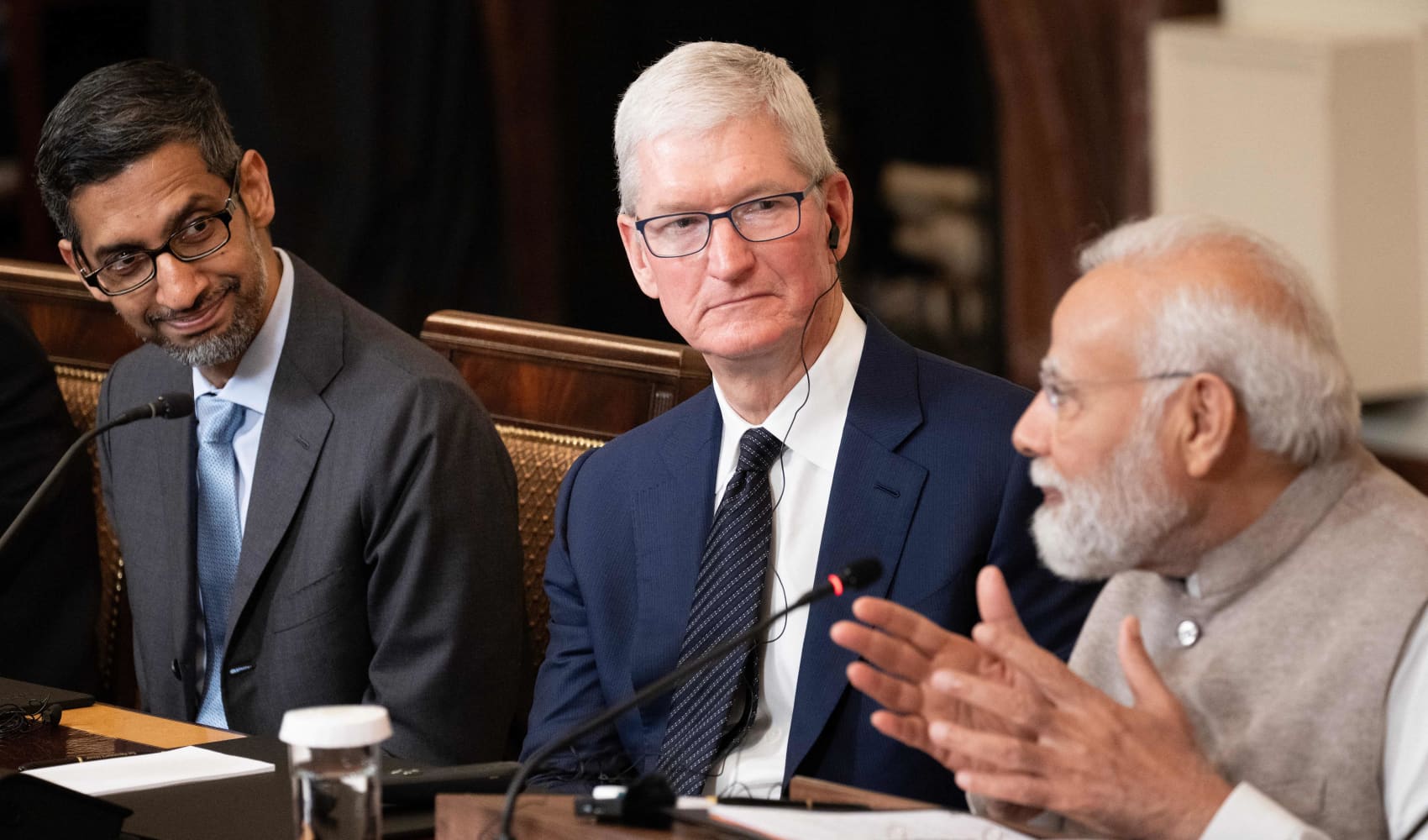
- Ahead of the crucial Jan. 5 Senate runoff election that will decide control of the upper chamber, Democrats are targeting the growing political power of Asian American and Latino voters across Georgia.
- They're hoping that the multiracial coalition that delivered the state for Biden can also defeat incumbent GOP Sens. David Perdue and Kelly Loeffler and send Jon Ossoff and Raphael Warnock to the Senate.
- Leaders of AAPI and Latino advocacy groups say it will take continued investment and grassroots organizing for Democrats to win in January and beyond.
Growing up in Georgia, James Woo was never contacted by political campaigns and his house rarely received flyers or mailers for candidates. There was only one ethnic market to shop for cultural food. He could count out all the other Asian American kids in his Gwinnett County middle school class.
Now, Gwinnett is one of the most racially diverse counties in Georgia with substantial Asian American and Pacific Islander and Latino populations — groups that are growing in the metro Atlanta area and across the state.
Ahead of the crucial Jan. 5 Senate runoff election that will decide control of the upper chamber, Democrats are hoping to tap the rising political power of AAPI and Latino voters across Georgia to defeat incumbent GOP Sens. David Perdue and Kelly Loeffler and elect challengers Jon Ossoff and Rev. Raphael Warnock.
Woo is a communications manager and Korean outreach leader for Asian Americans Advancing Justice-Atlanta, a nonprofit that has been working for years to mobilize AAPI voters in Georgia. Advancing Justice-Atlanta and other advocacy groups for communities of color have been reaching out to voters that many political campaigns overlooked in the past.
A historic surge in Asian American and Latino voters helped flip the state blue for President-elect Joe Biden, according to Democratic data firm TargetSmart. Relative to 2016, AAPI total turnout increased by 91%, while Latino turnout grew by 72%.
"This kind of turnout didn't really happen overnight," Woo said. "We've been collaborating with other Black, brown and immigrant communities and organizations to get them out to vote."
Money Report
Leaders of AAPI and Latino advocacy groups say it will take continued investment and grassroots organizing for Democrats to win in January and beyond.
Georgia's changing political landscape
"Partisan politics in Georgia has long been defined by a Black-White racial divide and Asian Americans and Latinos don't quite fit obviously into that framework in a neat fashion," said Emory University political scientist Bernard Fraga.
"They're more persuadable than Whites or African Americans are, so they're more of a swing constituency," Fraga said. "But Asian Americans and Latinos are much closer to being a core Democratic constituency in the state than even suburban White voters."
According to NBC News exit polls, 88% of Black voters in Georgia supported Biden while 69% of White voters in the state favored incumbent Republican President Donald Trump. Meanwhile, 62% of Georgia's Latino voters supported Biden and 63% of AAPI voters nationwide favored Biden. (AAPI data was not available for Georgia.)
Fraga said that the results of the November election in Georgia demonstrate a "model for the long term for Democrats that isn't reliant on an ever shrinking share of the White vote, and instead is engaging with and boosting the turnout rates of Latinos and Asian Americans."
Asian American and Latino voters made up roughly 3% and 5%, respectively, of Georgia's eligible voters in 2019, but they're by far the fastest-growing segments of the U.S. electorate, according to the Pew Research Center.
"People are, for the first time, realizing that AAPI and Latinx voters are this growing group of folks that have the possibility to swing a state one way or the other," said Gigi Pedraza, executive director of Latino Community Fund Georgia.
Gearing up for Jan. 5
In the highly competitive Senate runoff races that are expected to come down to the wire, boosting turnout among AAPI and Latino voters will be key for Democrats hoping to maximize voter margins.
Georgia election rules called for runoff races when no candidate exceeded 50% of voter share in either race during the Nov. 3 election.
After the general election, the Ossoff campaign hired constituency directors focused on AAPI and Latino outreach, according to a campaign spokesperson. The Warnock campaign hired an AAPI community coordinator dedicated to political outreach in the summer of 2020 and also has a Latinx vote director and New Americans coordinator on staff, the campaign told CNBC.
The Perdue campaign did not respond to CNBC's request for comment. The Loeffler campaign was not available for comment before this story published.
Historically, Asian American and Latino voter turnout has dropped off in runoff elections compared with Black and White voters. As of Dec. 24, more than 2 million people have voted in the Senate runoffs. The pace of Black turnout in the runoff election is at or above the pace of turnout during the Nov. 3 election, while the pace of White turnout is slightly lower, according to Fraga's analysis of early voting data. The drop-off of Latino and AAPI turnout in the runoffs is the lowest of the racial groups, hovering between 80-90% of the turnout pace from the general election.
The campaigns, Democratic Party and advocacy groups are all working to increase turnout from AAPI and Latino voters as Jan. 5 approaches. Before the voter registration deadline, they helped register new voters. Voto Latino, a national voter registration organization, said it registered 12,000 new voters in Georgia for the runoffs in addition to the nearly 36,000 voters the organization registered for the general election.
"We know that that turnout is going to be the biggest issue," said María Teresa Kumar, president and CEO of Voto Latino. "That's why we started registering voters again."
Of the nearly 76,000 new voters registered in Georgia since before the November election, Latino and Asian American voters made up more than their overall share of the electorate, The Atlanta Journal-Constitution reported.
Language barriers and gaps in civic education are challenges that particularly affect Asian American and Latino voters, many of whom are first-time voters, young people or naturalized citizens. Leaders of AAPI and Latino advocacy groups say the misinformation can spread quickly in their communities, particularly on group messaging platforms like WeChat, WhatsApp and KakaoTalk, and sometimes through ethnic media. Asian American and Latino voters are not monoliths either; they span diverse ethnicities, languages and experiences between different communities.
Groups are hoping to address those challenges through multilingual and multicultural voter outreach: door-to-door canvassing, literature drops, phone and text banking, ads and press in ethnic media — collectively aiming to contact hundreds of thousands of voters. Through the early voting period and on Jan. 5, advocacy groups are also organizing election protection work and multilingual voter hotlines.
Beyond the runoff election
In recent history, the work of voter mobilization for these communities of color has been taken on primarily by local entities. Asian American and Latino organizers cite the work of Black organizers for paving the way, particularly leaders like voting rights activist and former Democratic gubernatorial candidate Stacey Abrams, who has collaborated with AAPI and Latino groups for years.
"We have really built up our communities in a way that hadn't really existed there in the past, so when we talk about why Georgia turned blue this year, it is in large part because of the organizing that happened in communities of color over the last few years," said Aisha Yaqoob Mahmood, director of Asian American Advocacy Fund, a progressive grassroots group focused on AAPIs in Georgia. "Over the last few years it's been very clear that in order to move Georgia forward, it would require an investment in communities of color."
While Georgians can self-identify their race when registering to vote, making it easy for organizations to use voter rolls to contact key constituencies, it can be difficult to reach eligible voters who may not yet have a voting history. Leaders of advocacy groups say that it can be more time consuming and costly to canvass in AAPI and Latino neighborhoods, because the high percentage of immigrants means there are typically a smaller portion of eligible voters compared with Black and White neighborhoods.
Continuing the momentum in mobilizing Asian American and Latino voters will require continued outreach and relationship-building, organizers say. The investment is especially important for the Democratic Party if it wants to solidify AAPI and Latino voters as a core part of its base.
Jen Rafanan, AAPI media director of the Georgia Democratic Party, said in a statement, "we aren't taking anything for granted." Rafanan and Karla Alvarado, Georgia Democrats' Latinx media director, said the party is committed to engaging and mobilizing AAPI and Latino communities in the state beyond the runoff election.
"We have been struggling every year to get investments," said Pedraza of Latino Community Fund Georgia. "Now everybody's paying attention, which is great...But can you make a commitment for the next five years?"
"Because maybe Georgia is not going to be sexy next year, and it's going to be sexy back again in 2022 for the gubernatorial election, but by then it's going to be too late," Pedraza said. "We need to continue building next year so we're ready for 2022."






